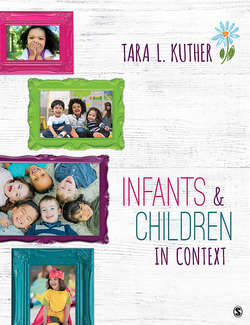Читать книгу Infants and Children in Context - Tara L. Kuther - Страница 157
На сайте Литреса книга снята с продажи.
Applying Developmental Science Maternal Drug Use While Pregnant
ОглавлениеWe have seen that exposure to teratogens such as drugs and alcohol adversely affects the developing fetus. Is maternal substance use fetal abuse? For many states, the answer is yes. Although laws are generally intended to promote health and protect fetuses, some developmental scientists and policy analysts argue that state laws are punitive because they potentially threaten women with involuntary treatment or protective custody during pregnancy (Seiler, 2016). As of 2017, 34 states had laws related to reporting of alcohol consumption during pregnancy (Alcohol Policy Information System, 2018). One-half of states classify controlled substance use during pregnancy as child abuse, which may lead to removing the infant from parental custody or even terminating parental rights (Guttmacher Institute, 2018). In some cases, these consequences have been extended to include alcohol abuse and dependence (Paltrow & Flavin, 2013; Seiler, 2016).
Both the American College of Obstetricians and Gynecologists (2011) and the American Medical Association (2014) argue that criminal sanctions for maternal drug use are ineffective because they increase the risk of harm by discouraging prenatal and postnatal care and undermining the physician–patient relationship. Such policies can cause women to develop a mistrust in medical professionals that ultimately harms their care if they become reluctant to seek medical care for themselves and their children. Others argue that these policies are discriminatory toward women of color and those in low socioeconomic status brackets because low-income African American and Hispanic women are disproportionately tested and tried for substance use (Paltrow & Flavin, 2013). For example, a study of one California county with universal screening policies requiring drug and alcohol testing for all pregnant women found that although Black and White women showed similar rates of drug and alcohol use, Black women were four times more likely than White women to be reported to child protective services after delivery (Roberts & Nuru-Jeter, 2012).
Moreover, some experts argue that mandatory drug testing violates women’s rights because they are treated differently under the law compared with men because of their sex and pregnancy status (Hui, Angelotta, & Fisher, 2017). Punitive approaches to maternal substance use that favor criminal charges over substance abuse treatment may pit the interdependent interests of the mother and fetus against each other. Some argue that there is no evidence that punitive measures improve maternal or fetal outcomes. Instead, fetal outcomes as supported by substance abuse treatment that rewards abstention, invests in family and community supports, and promotes contact with health care and social support services hold the most promise (Bada et al., 2012; Hui et al., 2017).
